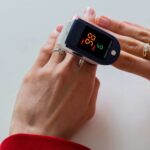The kidneys have an essential job in the human body. Controlling electrolyte levels and producing hormones are just some of their roles in harmony with other bodily systems to keep a person alive. This is why a disease affecting the kidneys, such as chronic kidney disease (CKD), can be a devastating blow to a person’s overall health.
The leading cause of CKD in type 2 diabetes. Obesity significantly contributes to diabetes and hypertension and therefore is another indication of CKD risk. According to the CDC, approximately 15% of U.S. adults have CKD, and many of them might not even know they have it. The disease is characterized by a gradual loss of kidney function, taking anywhere from months to years. Without treatment, serious complications can arise, from heart disease to death. There is no cure for CKD once it’s been diagnosed. It is, however, preventable.
This is precisely why Dr. Blake Shusterman, an ambassador of the American Kidney Fund, is bringing more awareness to CKD. Also known as The Cooking Doc, Dr. Blake has combined his expertise in nephrology with his love of food to educate patients on the importance of diet and how it affects kidney health.
The Root Cause of CKD
A person with diabetes has damage to their blood vessels, including those coming in and out of the kidneys. This vascular damage impairs the kidney’s ability to filter the blood. If a person with diabetes neglects to manage their condition by keeping their blood glucose levels in the target range, they increase their risk of kidney damage. This can eventually lead to developing CKD.
The risk of CKD increases if the person with diabetes also smokes, doesn’t exercise, or has a family history of renal problems. A person’s family history can’t be changed regarding diseases. However, changing the habits under their control can make a difference when it comes to lowering the personal risk of developing kidney problems. Along with taking prescribed medications and exercising, controlling one’s diet is one of the simplest ways to mitigate that risk.
The first step is to eliminate foods high in sodium, such as processed deli meats, pickles, and packaged snacks. A diet low in added sugar can also help by reducing insulin spikes and subsequent stress to damaged kidneys. The key is to delay any damage as much as possible before the condition sets in. Typically, it requires a complete lifestyle change, avoiding most foods that many Americans would see as comforting or fun, like ice cream, cookies, and pizza. Knowing this, many people assume that they must give up their favorite foods to save their kidneys. Dr. Blake disagrees.
Cooking for Kidney Health
It’s still possible to enjoy delicious food and manage your diabetes simultaneously. Cooking provides the ultimate control over the sodium content that ends up in one’s body. This isn’t possible with takeout, prepackaged, or frozen meals. These meals may taste objectively better, but it’s usually thanks to high levels of sodium and fat.
Canned vegetables, condiments, and plain bread contain high amounts of sodium that the average person may not be aware of. Excess sodium can also be found in unexpected places. For this reason, Dr. Blake emphasizes exploring cooking as a solution rather than just eating for kidney health.
In partnership with the American Kidney Fund, Dr. Blake is helping to promote their “Kidney Kitchen” initiative by sharing his low-sodium recipes. These beginner-friendly recipes depend on creative substitutions using natural, fresh ingredients rather than salt for flavor. With tweaked classics like deviled eggs and Creole chicken burgers, the resource allows people to cook guilt-free food they can enjoy.
“To my family, food is not only sacred but downright fun,” Dr. Blake says when describing the source of his inspiration. As a practicing nephrologist, he has personally witnessed the knowledge gap regarding self-manage diabetes. Many of his patients are passionate about food but are unsure how to approach the much-needed diet change. Coming from a food-loving family, he can certainly empathize.
Given this, he promises not to tell you what to give up for the sake of your kidneys. Instead, he aims to help people understand that a low-sodium diet can still be flavorful and delicious. His book “Kidney-Healthy Cooking” outlines the basics of a healthy diet from the ground up, complete with over 50 easy recipes for renal health. With the knowledge placed in the patient’s hands, they become more empowered to make healthier choices.
When it comes to health, prevention is the best medicine, and it all starts with a clean diet. Learn more about The Cooking Doc and the AKF Foundation through their website.
















